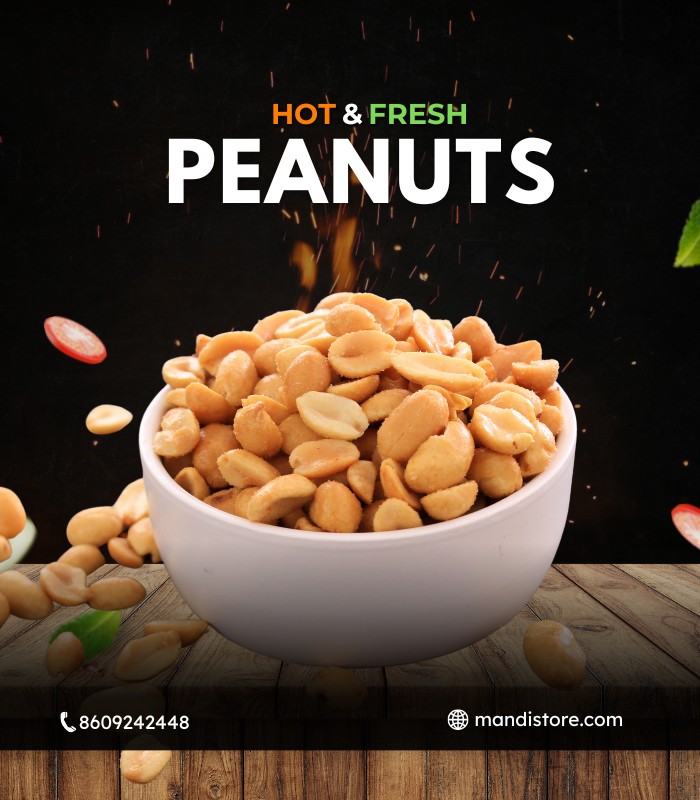Peanuts, scientifically known as Arachis hypogaea, are a popular legume crop grown for their edible seeds. Despite being called “nuts,” they are not true nuts but rather belong to the legume family, which includes beans, lentils, and peas. Here are some key points about peanuts:
- Origin and Cultivation:
Peanuts are believed to have originated in South America, particularly in regions of Bolivia and Peru. They are now widely cultivated in tropical and subtropical regions around the world, with major producers including China, India, the United States, and Nigeria. - Nutritional Value:
Peanuts are highly nutritious, rich in protein, healthy fats (monounsaturated and polyunsaturated fats), vitamins (such as B vitamins and vitamin E), and minerals (like magnesium, phosphorus, and potassium). They are also a good source of antioxidants, including resveratrol. - Uses:
- Food: Peanuts are consumed in various forms, such as roasted peanuts, peanut butter, peanut oil, and as an ingredient in snacks, candies, and desserts.
- Oil: Peanut oil is widely used for cooking due to its high smoke point and mild flavor.
- Industrial Uses: Peanut byproducts are used in cosmetics, soaps, and even as animal feed.
- Health Benefits:
- Heart Health: The healthy fats in peanuts can help reduce bad cholesterol levels and lower the risk of heart disease.
- Weight Management: Peanuts are satiating, which can help with weight control when consumed in moderation.
- Blood Sugar Regulation: Their low glycemic index makes them a good snack for people with diabetes.
- Allergies:
Peanut allergies are one of the most common food allergies, particularly in children. Reactions can range from mild to severe, including anaphylaxis, a life-threatening condition. - Growth and Harvesting:
Peanuts grow underground, which is unique among legumes. After flowering, the plant’s pegs (stalks) bend downward and push the developing pods into the soil. They are typically harvested after 4-5 months of growth. - Cultural Significance:
Peanuts have cultural and economic importance in many countries. For example, in the U.S., they are associated with baseball games and peanut butter sandwiches, while in parts of Africa and Asia, they are a staple food and cash crop.
Overall, peanuts are a versatile, nutrient-dense food with significant global importance. However, their allergenic potential requires careful consideration for sensitive individuals.











Reviews
There are no reviews yet.